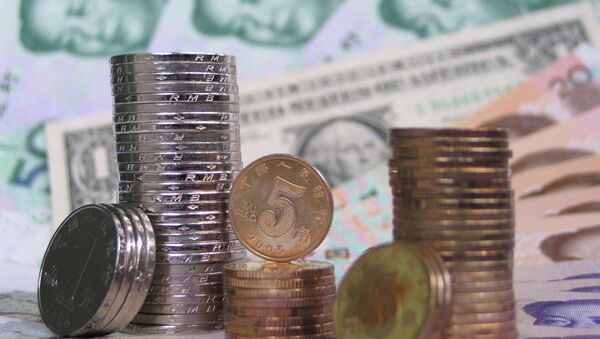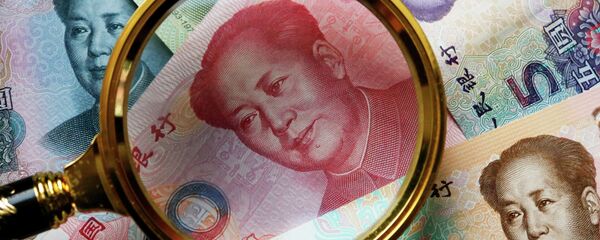Kristian Rouz – The International Monetary Fund (IMF) backed the People's Republic of China’s initiative to include its currency, the renminbi, in the group's basket of reserve currencies last Friday, but Beijing is required to take further steps to liberalize the nation’s money market.
In a silent consensus accompanying the ongoing Beijing-Washington economic rapprochement, China has to loosen its control of money flows in order to secure the benefits of participation in the exclusive club of the world’s biggest currencies, which will allow the nation’s bond market to thrive. Investment-starved China is likely to comply with the conditions tacitly suggested by the IMF as the acceleration of growth is seen as impossible for Beijing unless it becomes more integrated into the world's financial market system.
The accession of China’s renminbi to the IMF’s pool of global reserve currencies seems to be a done deal now, after the Washington-based global lender gave its conditional approval of Beijing’s bid on Friday despite the persistent implications that still plague the renminbi’s full convertibility.
The Chinese currency’s presence in global reserves remains insufficient, while its FX rate is still subject to Chinese government regulation. Nonetheless, the IMF countries are seemingly ready to overlook these mishaps should China loosen its capital controls, allowing the international corporations to extract greater returns from their operation in China.
The SDR currency basket inclusion is not merely a matter of international prestige for mainland China. While the international governments will feel free to use the renminbi as a staple of their foreign reserves, the abundance of cash inflows in China will allow Beijing to boost domestic investment, thus possibly resolve the long-lasting issue of its dangerous economic slowdown. The renminbi FX rate would essentially become more flexible and less politically determined; however, this will require further reform from Beijing.
“If you are in the SDR, you have to promise to open up the capital account,” Liu Li-Gang of the Hong Kong-based Australia & New Zealand Banking Group said.
“In the medium term, the yuan is bound to appreciate because of potential large inflows, and China’s reformers would like to use these external forces to accelerate liberalization. The IMF report suggests that the yuan’s entry into the SDR is more or less done.”
Chinese bonds are poised to benefit the greatest for the renminbi's accession to the SDR basket. Currently, China’s yields are high due to rife economic concerns; they're currently 3.13% on 10-year bonds (vs. 2.27% on 10-year US Treasury notes and 0.56% on Deutsche Bunds). SDR inclusion would provide safeguard warranties for investors similar to those buying US and German debt, and a higher yield would ensure a robust influx of cash.
According to estimates by Deutsche Bank, the SDR inclusion would provide some $628 bln of capital inflows in China over the next five years.
Currently, only 2% of China’s bonds are held by international investors, meaning there are vast expansion opportunities amid China’s domestic projects. Goldman Sachs reported some $1 trln of international capital might flow into China’s debt, stirring robust growth acceleration in the ostensibly communist nation.
Still, these positive effects on China’s economy could only be achieved if Beijing takes further steps in reforming the country's money market and broader economy.
The renminbi is tightly controlled by the Chinese government, and Beijing is hardly interested in capital inflows driving a sharp appreciation in the price of the national currency. While a domestic demand-driven growth model would ease concerns regarding China’s international competitiveness, a shift from its current reliance on exports may take a while. All that said, most of the positive impact of the SDR inclusion might turn out to be void if Beijing is not quick in adjusting its economic model to meet the coming new reality.





